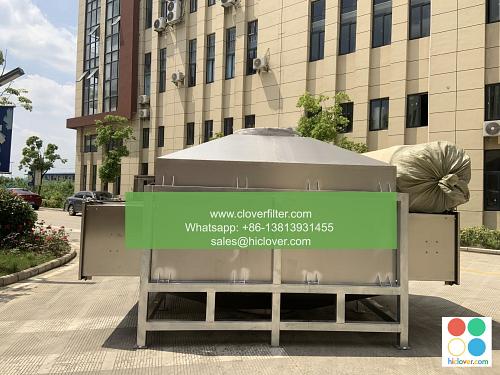VOCs (Volatile Organic Compounds): The Importance of Air Filtration in Home and Industrial Spaces

Volatile Organic Compounds (VOCs) are a type of air pollutant that can have severe health impacts on individuals, especially in indoor air quality settings. VOCs are emitted by various indoor pollution sources, including building materials, furnishings, cleaning products, and industrial processes. In this article, we will explore the importance of air filtration in home and industrial spaces to mitigate the risks associated with VOCs.
What are VOCs and How are They Formed?
VOCs are organic chemicals that have a high vapor pressure at ordinary room temperature. They are formed through various chemical reactions and physical processes, including combustion, evaporation, and biological processes. Common indoor VOC sources include paints, adhesives, cleaning products, furniture, and building materials. In industrial settings, VOCs can be emitted by manufacturing processes, chemical storage, and waste management practices.
Health Impacts of VOCs
Exposure to VOCs can cause a range of health problems, including respiratory issues, headaches, dizziness, and allergic reactions. Prolonged exposure to high levels of VOCs can lead to more severe health effects, such as cancer, neurological damage, and reproductive problems. Therefore, it is essential to implement effective air filtration systems to remove VOCs from the air and maintain good indoor air quality.
Application Areas of Air Filtration Systems
Air filtration systems can be applied in various settings, including:
- Home and residential spaces: to remove VOCs from indoor air and maintain good air quality
- Industrial and commercial spaces: to remove VOCs and other air pollutants from the air and maintain a safe and healthy work environment
- Hospitals and healthcare facilities: to remove airborne pathogens and VOCs from the air and maintain a sterile environment
- Schools and educational institutions: to remove VOCs and other air pollutants from the air and maintain good indoor air quality
Types of Air Filtration Systems
There are various types of air filtration systems available, including:
- Activated carbon filters: effective in removing VOCs and other gaseous pollutants from the air
- HEPA filters: effective in removing particulate matter and airborne pathogens from the air
- UV air purifiers: effective in removing airborne pathogens and VOCs from the air using ultraviolet light
- Ionizers: effective in removing particulate matter and airborne pathogens from the air using negative ions
Conclusion
In conclusion, VOCs are a significant indoor air quality concern that can have severe health impacts on individuals. Implementing effective air filtration systems is crucial in removing VOCs and other air pollutants from the air and maintaining good indoor air quality. By understanding the importance of air filtration and the various application areas, we can take steps to mitigate the risks associated with VOCs and create a healthier and safer indoor environment. It looks like you’re ready to start a conversation or ask a question, but you haven’t given me a specific prompt yet. What’s on your mind? Do you have a topic you’d like to discuss, a question you need help with, or perhaps a problem you’re trying to solve? I’m all ears (or rather, all text) and ready to assist you!

